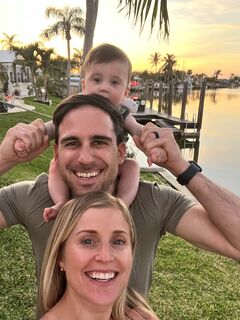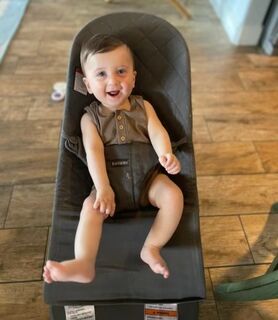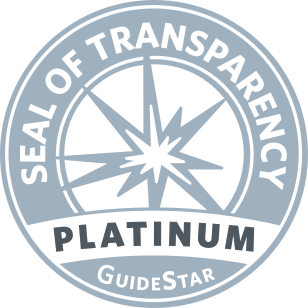Evolving With Eyesight and Life
Beacon Stories
Gavin was diagnosed with Stargardt disease at the age of 19. In his own words, Gavin shares his experience over the last 13 years adjusting to the unpredictability of his vision loss and how being a new parent has shifted his mindset.

Gavin with his 7-month-old son on his shoulders and his wife posing outside at sunset.
My name is Gavin Donley. I am 32 years old, live in San Diego, and am head of marketing for an AI startup. I have been married to an incredible woman for almost two years, and we have a new 7-month-old baby boy.
What you would probably not realize when you look at me is that I have Stargardt disease. When I was 19 and headed into my sophomore year at Miami University, I went in for my yearly eye exam to get my contact prescription updated. During that eye appointment, my optometrist was perplexed on why she couldn’t get me reading at 20/20. What ensued was a multitude of eye appointments until I eventually ended up at the Cincinnati Eye Institute, where I finally received my Stargardt disease diagnosis.
When I received my diagnosis, I remember my doctor saying, “Don’t go home and Google this.” So, I went home and Googled it. All the concern of those around me finally made sense as I read that, eventually, I would lose my eyesight.
I have spent the last 13 years constantly adjusting to the unpredictability of the loss of my eyesight. I don’t notice a difference from one day to the next, but every once in a while, I have moments where I realize just how much sight I have lost. As a competitive problem solver, though, I have always found solutions to my challenges that work well for me. I have figured out how to leverage various technologies' accessibility features to be a successful professional, to inexpensively get around a city with trains, buses, Ubers, and bikes, and how to act like I know who a person is until I get enough clues to figure out who I am talking to.

Gavin’s 7-month-old son sitting in a bouncer smiling.
As a new parent, what I quickly have realized is that an evolution of these solutions is required, meaning these solutions need to work for people other than just myself. Becoming a new parent comes with its anticipated hurdles, but with low vision, these new hurdles feel closer together and taller. Things you may not normally consider as the difficult part of parenting are quite difficult for me with low vision, like measuring the exact right amount of formula or medicine, reading a bedtime story, seeing if your kid is crying or laughing (cause so many times it sounds the same!) and getting to a doctor's appointment (or anywhere for that matter)! Once you insert a crying baby into the situation, the stress can hit maximum levels.
In a way, parenthood feels like I am rediscovering that I have limitations. But it’s also a great opportunity to teach my child that it’s okay to struggle and face obstacles. The way I address these challenges will be more measurable and impactful to my child than what I am not able to do for him. Realizing this provides the comfort I need that I will provide my child with exactly what he needs.




